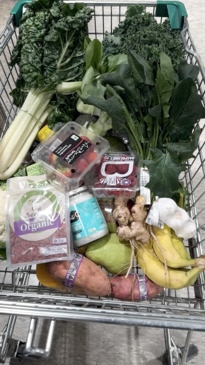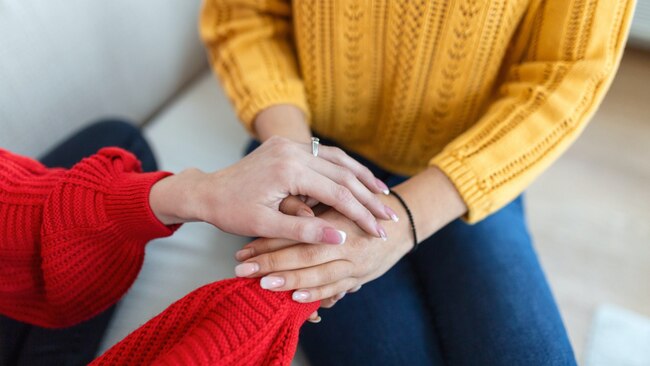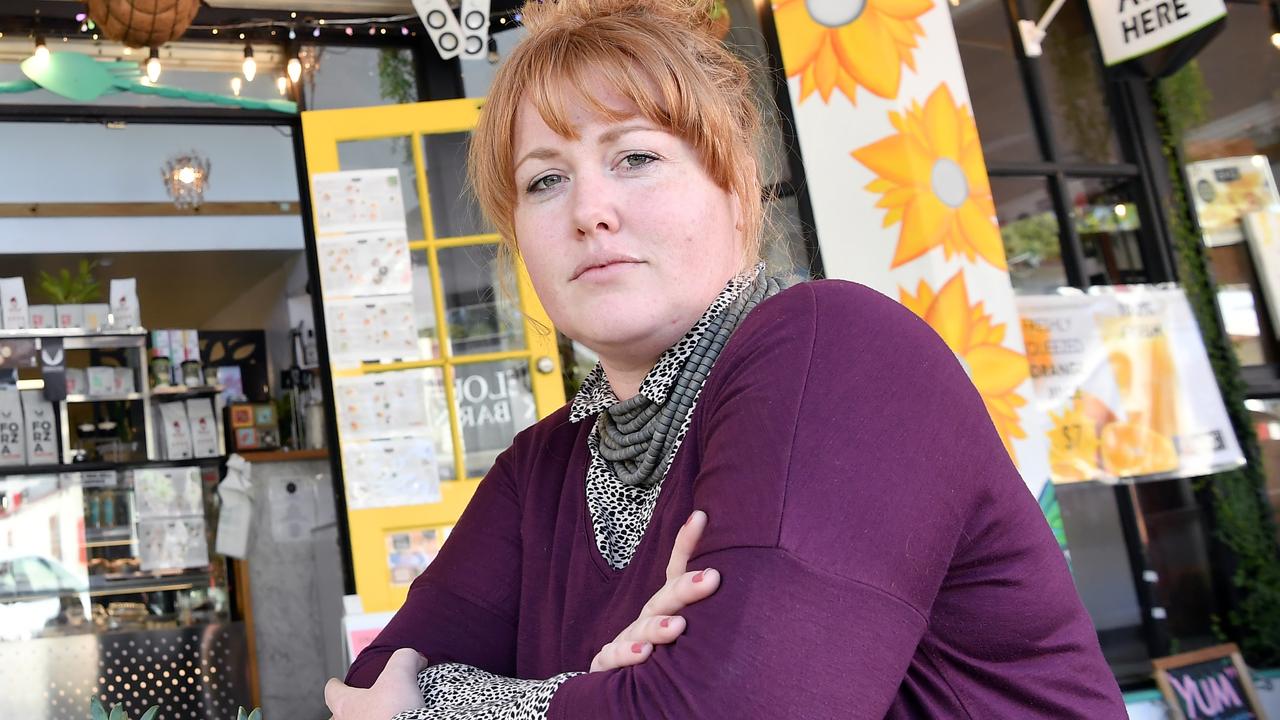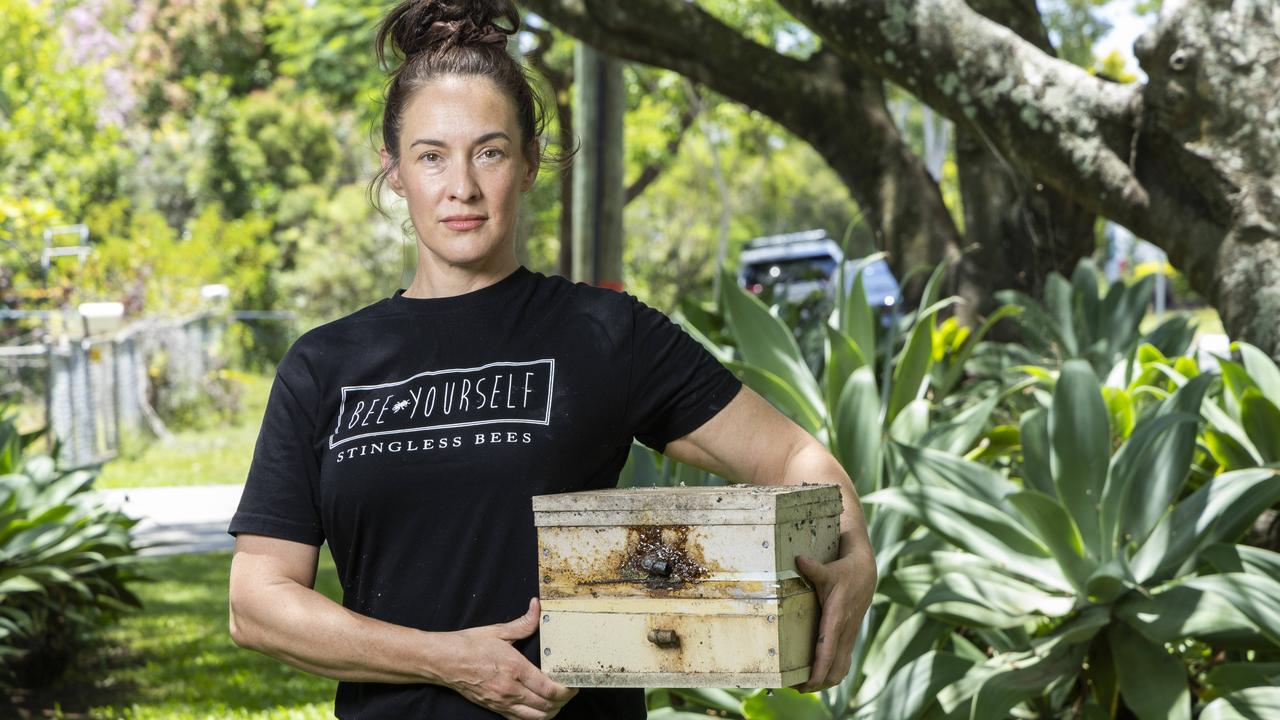How to support someone through pregnancy loss
Little gestures go a long way

Lifestyle
Don't miss out on the headlines from Lifestyle. Followed categories will be added to My News.
While it can be difficult to know what to say or do, there are plenty of simple ways to help a friend or family member cope with pregnancy loss.
You’ve heard the statistic: One in four pregnancies end in a miscarriage. It’s a shocking percentage and one that plays on the minds of many women during pregnancy. However, it’s not until you or someone you love experiences a loss that you truly understand miscarriage beyond the statistics.
With October marking pregnancy and infant loss awareness month, it's time we spoke about the elephant in the room: miscarriage.
Going through a miscarriage is an incredibly raw and vulnerable time for any woman, no matter at what ‘stage’ of pregnancy the loss occurs. You are grieving the potential of what could have been.

Like what you see? Sign up to our bodyandsoul.com.au newsletter for more stories like this.
Just because you didn’t hold that baby in your arms doesn’t mean you are any less of a mother. There’s often physical pain and symptoms to endure alongside the mental, hormonal and emotional impact. Not to mention the internal questioning of yourself, like, “Did I do something wrong?” “What’s wrong with my body?” “Will I be able to carry a pregnancy?”
These questions can continue for years following a loss. And the external chatter can be just as challenging, with comments like, “At least you know you can get pregnant” coming across as far less comforting as they were perhaps intended.
The thing is, unless you’ve been through a loss yourself it’s one of those things that people tend to get awkward around. Grief often is. We don’t know how to hold space for it as humans so we try to offer things to distract or numb the discomfort.
Holding space for someone going through a loss is confronting but in doing so, you show that woman that her experience is valid; That her feelings matter and that the grief she is experiencing for the life she could have had is an important thing for her to have the time, space and support to process. No matter how long that takes or what that healing process looks like.

When I experienced a miscarriage it was the women around me who had been there too that helped me to process and make sense of what was happening. It blows my mind how little the process itself is spoken about. You can, of course, go down a Google wormhole but that’s not great for anyone. I was left wondering where the ‘What to expect when you’re having a miscarriage’ handbook was.
Ultimately, it was the women around me who had experienced a loss who supported me by sharing the details of their experience and providing suggestions on how to navigate my own loss in a way that honoured the birth even though the outcome wasn’t a happy one. Through sharing stories I found solace. Through treating the experience as a birth (it is!) I found healing and through rest and reflection, I found peace.
Once I started speaking up about it and sharing my story online I began to realise… This was a topic that so many women had been impacted by but not many were talking about.
Every pregnancy is important. No matter the outcome.
It’s so common and yet so taboo. Often there's a sense of shame in sharing. I know I hesitated for fear of judgment. But when we share our stories we help others process theirs and we take something that’s been hidden in the dark and bring light to it.

Pregnancy loss can be a major life-altering event that changes a woman forever. We must support women through this in ways that are right for them. For me, and the women around me, we found that the sense of community and shared experience through storytelling to be incredibly healing for anyone impacted by loss.
By honouring the process and allowing time to heal, women can move on with reverence to the experience. Rather than putting on a brave face, shoving their true feelings to one side and ‘getting on with it’.
According to chiropractor and founder of pregnancy loss support brand Aila and Lior, Dr Megan Osborne, “Post-traumatic stress disorder (PTSD) occurs in a large percentage of pregnancy losses. This can be from people making insensitive comments, to near-death experiences - the range is wide. Trauma can occur when the body and mind have endured something unexpected, and pregnancy loss falls into this category. Seeking therapies to process this trauma can be of great benefit.” This is why it’s so important we support the women around us (or ourselves) through a loss.
So how do you support someone going through it?
Ditch the awkward-silence-filling comments
Swap out “lucky it was only early” or “at least you hadn’t told many people”. For “what do you need right now?” or “I’m here to listen”. The earlier comments might be well-meaning but to a grieving woman, it’s essentially asking her to bypass her feelings and experience.
Instead, hold space and listen to her story. You don’t have to say anything. You may be surprised at how this simple act of asking a question and remaining silent for the woman to fill that space with her words, if and when she chooses to, can be exactly what she needs.

Food, food, food
Dr Osborne says “The same principles of conventional postpartum recovery can be applied to loss: rest, recovery, nourishment.” As a supportive friend or loved one, this means you can arrange for food to be delivered or stock up the freezer with soul-nourishing foods.
“The physiological process of birthing a pregnancy loss is so similar (whether surgically or natural labour occurs) to a full-term birth. Eating regular, nourishing meals: prioritising protein for muscle and pelvic floor recovery; plenty of healthy fats to aid hormones.”
So think slow-cooked stews and bone broth as something to arrive with. Also, be mindful that the woman may wish to stay in her cocoon, so always be respectful of her boundaries - it may be a drop-at-the-doorstep type of support that is exactly what she needs at that moment.
Encourage rest
“One of the biggest mistakes I see is women rushing back to 'normal life' after pregnancy loss, without acknowledging or healing from the huge changes that have occurred. From a physiological standpoint, the body has gone through birth- this takes a large toll on hormones, the pelvic floor and vital energy,” says Dr Osborne. Which means rest is important. Through rest, the physical body can heal.
As a support person, this may look like helping around the house or taking care of other children so that the woman can rest without worrying about hanging out the washing or chasing around a toddler.

Sit down and listen
The mental aspect of miscarriage is huge. One moment you are planning a birth and picking out baby names and the next you are processing a loss. It’s a lot to come to terms with and often women just want to be heard in their unravelling of that process.
There’s literally nothing you can say to make it better or to take the pain away. All you can do is listen. Offer a hug and allow your friend or loved one to feel seen and validated in her experience. As much as you want to be there for her, you can’t process this for her. Processing emotional layers takes time, so be gentle, patient and selfless in your communication.
Create a care package
Putting together a little care package is a beautiful way to support. Especially if you can’t be there physically to bring a meal. Nothing says “I see you and I’m here for you” like some chocolates, bath salts and a candle. Consider adding some nervous system supportive tea or personal declaration cards as emotional support.
If you’ve got the budget and want to take it a step further you could purchase a voucher for a womb healing or massage. If gift-giving is your love language think ‘What would support you to rest, heal and receive right now’ when purchasing something.
Let’s start talking about miscarriages and supporting the women around us who are experiencing them. Every pregnancy is important - no matter the outcome.
More Coverage
Originally published as How to support someone through pregnancy loss




